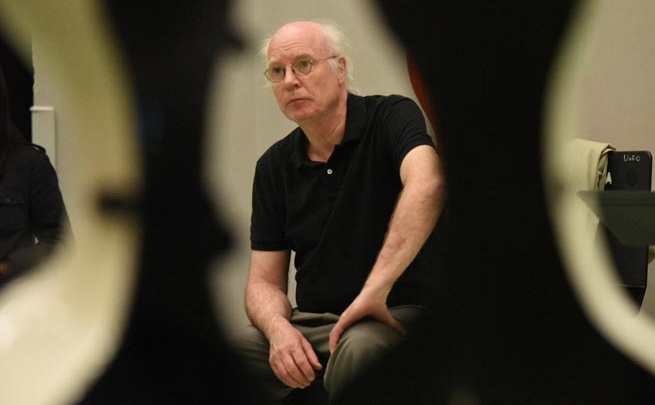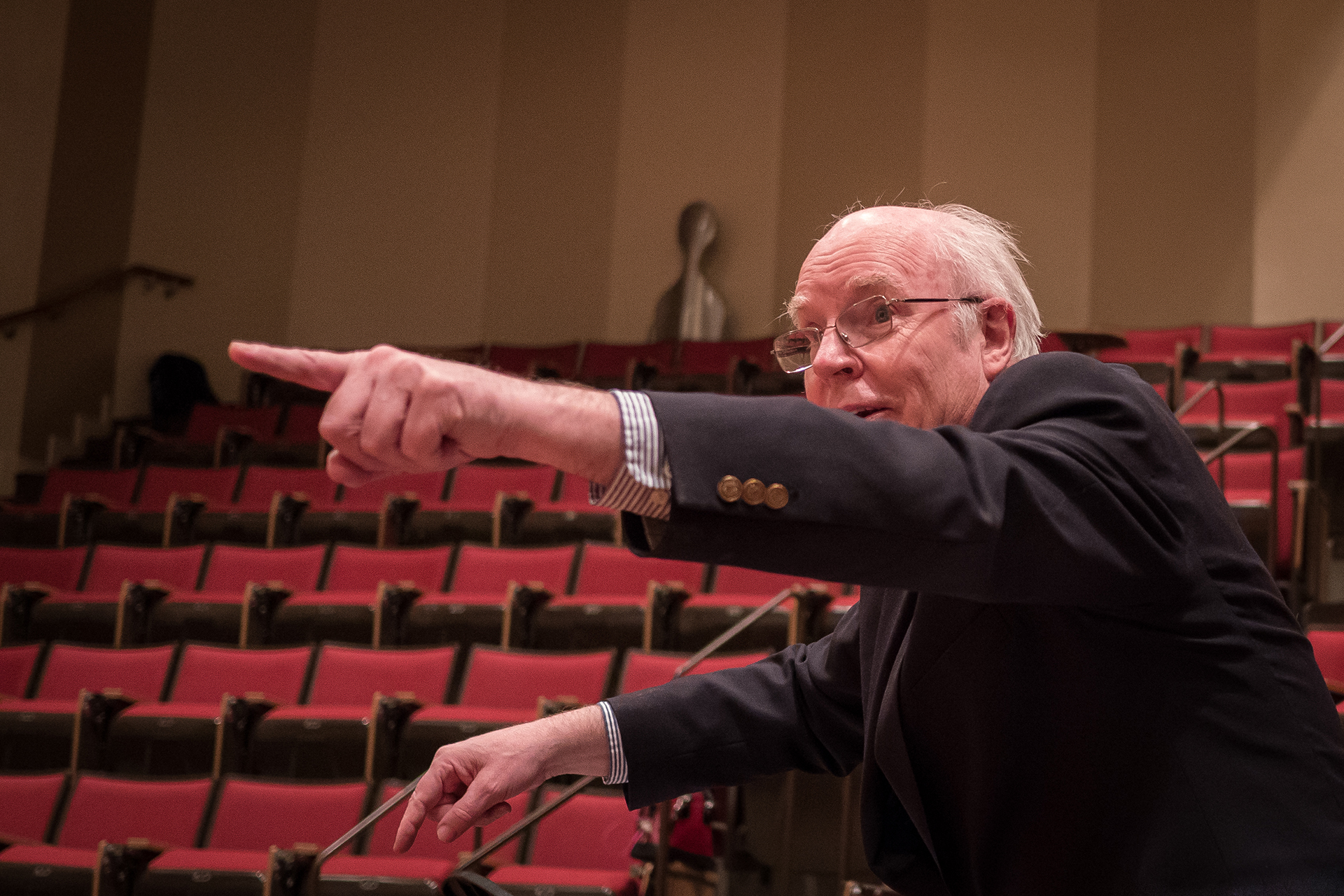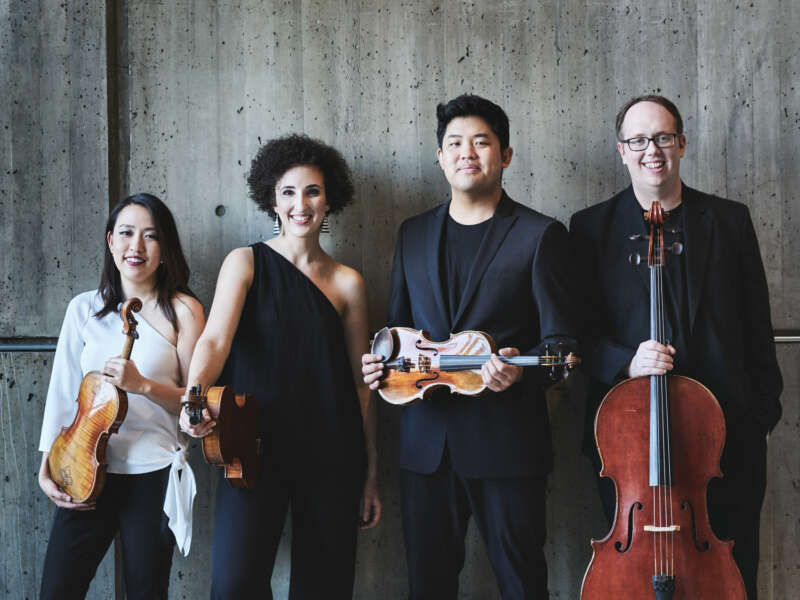Cello Pedagogue Hans Jørgen Jensen on Competitions and How to Prepare for Them
"How do you know when students are ready for competitions, and how do you help them prepare?" We threw the question to cello pedagogue Hans Jørgen Jensen for advice.
Musicians and athletes share many similarities in our respective professions — the numerous hours dedicated in training, practicing, and preparing, all for mastering and achieving optimal performance in the craft. Competitions are an essential component in learning and also a great way to motivate students to set aspirations and goals. VC reader Hasan wanted to know how to determine when students are ready for competitions and preparation tips.
Are you planning to take part in any music competitions soon? What are some helpful strategies you use while preparing for a competition? Please let us know in the comments below. We're all keen to learn more from you.

Cellist Hans Jørgen Jensen Shares Advice on Preparing for Competitions
Dear Hasan,
Competitions are a great way to motivate students and give them a sense of purpose in their individual studies. More than anything it provides an opportunity to create and work towards clearly-defined goals, which is an essential component of learning. As a teacher, however, it is important to guide students so that they only enter competitions that align with their level of playing. Younger students should start with smaller local competitions; as they gain more experience, they could then enter state and regional competitions. International competitions, I think, should only be attempted after having gained extensive experience as a soloist, both in recital and with orchestra.
It can often be difficult for students to understand that there are actually significant benefits to be gained even when one doesn’t win a competition. Sure, we should enter competitions with the goal to win, but ultimately, the experiences of winning or losing are both equally important for an individual’s growth and training.
In my own teaching, I often use sports analogies to illustrate this point. Being from Chicago, it is of course impossible to have escaped Michael Jordan’s impact during his career. It is interesting, however, that in actuality it took him and the Bulls a number of years to build a true winning team. In the same way, competitions are all about the long-term process. For example, winning a job in a top orchestra can sometimes take 10 to 30 attempts before one succeeds. I have personally only had one cello student who won his first audition for a major orchestra, and two other students who won on their second attempt. Most other students that I have worked with have had to take a number of auditions before succeeding. The lesson here is that if students start competing early they realize that losing is part of the game. Learning to navigate these experiences in a positive and constructive way goes a long way towards eventually succeeding.
One crucial aspect of competitions that is often overlooked is feedback, both from the audience and from judges.
When musicians are playing and performing for an audience it is important to know the difference between what they themselves are feeling and perceiving vs. what the audience is experiencing and perceiving. Competitions are very helpful tools that can be used towards developing this ability, for they give students the chance to receive feedback from a number of different judges, all of whom often share valuable insights and opinions. I also encourage my students, if they have been eliminated, to stay and listen to all the other contestants in the following rounds. Doing this with a very clear and objective mindset can be a wonderful learning experience, and can add a great deal of motivation and inspiration to one’s practice routine in the time period following the competition.
While competitions undoubtedly have many benefits, it is also worth noting some of their drawbacks. Turning music into a competitive sport in many ways diminishes the art form and can take away an individual’s creative desire for free expressive playing. Music is so much more than what can be measured in a competition setting. In fact, I often find that truly unique musicians do not always succeed in an international competition’s measuring system. I remember a time when Channing Robins, one of my wonderful teachers at the Juilliard School, advised me before entering a competition, “Hans don’t do that slide or that rubato. If you do, you will not win.” With a twinkle in his eye, he then said, “if you win you can do it in the prize winners concert!”
Afterward we both laughed. Jokes aside, however, Channing Robins really meant what he said, and I have actually repeated those exact words a number of times to my own students over the years. Unfortunately, this does put a limit on creativity, particularly if a performer has a strong conviction about a piece of music but is afraid to present it that way simply because he or she thinks the judges would not like it. It is important to understand this aspect of the competition experience and to know that the idiosyncrasies of an individual’s style can sometimes work against them in such a setting.
That being said, there is no question that the competitive process has become an integral part of the music profession. We musicians inevitably find ourselves having to take auditions at some point down the line, whether that be to win a job in an orchestra, chamber music group or teaching job. Therefore, as musicians, it is important to learn to be able to perform our best in a competitive situation, under extreme pressure.
How to prepare for bigger competitions:
In bigger international competitions, a lot of repertory has to be mastered at the same time. This requires a good plan that should be started at least one year before the competition.
Here I will show an example of how to prepare for a big competition that has 4 rounds.
When selecting repertory, choose works that you love and that you know fits your style of playing. Make sure to include pieces that you have already performed a lot.
I recommend dividing the preparation into 5 periods:
1. First period. 8 months. Spend approx. two months on each round with the goal of performing the complete round a few times in a concert situation after having learned the music.
2. Second period. 2 months. Spend two weeks on each round and end each two-week period with a performance of the music for the whole round.
3. Third period. 1 month. Spend one week on each round and perform the music for that round at the end of each week.
4. Fourths period. Prepare for one week and perform each round over 4 consecutive days. I have also had students do super long recitals where they perform all the rounds over one or two days.
5. Fifth period. One or two weeks just before the competition. Focus on the first round but include a shorter amount of daily practice time on going over the more difficult parts of the repertory in the other rounds. Having to perform the music so close together makes it more difficult than the competition itself and is a great way to prepare.
At the competition itself, it is best to focus on each round as it comes.
-Hans
Do you have a burning question for one of the pros? Simply email: [email protected]
A graduate of the Juilliard School where he studied with Leonard Rose and Channing Robbins, and a private student of Pierre Fournier, Hans Jørgen Jensen is long time cello professor on faculty at Northwestern University and the Meadowmount School of Music. His students have won prizes in numerous national and international competitions. Hans Jørgen Jensen's new cello method book 'Cellomind' was released by Ovation Press in November 2017 - and is available at cellomind.com






























